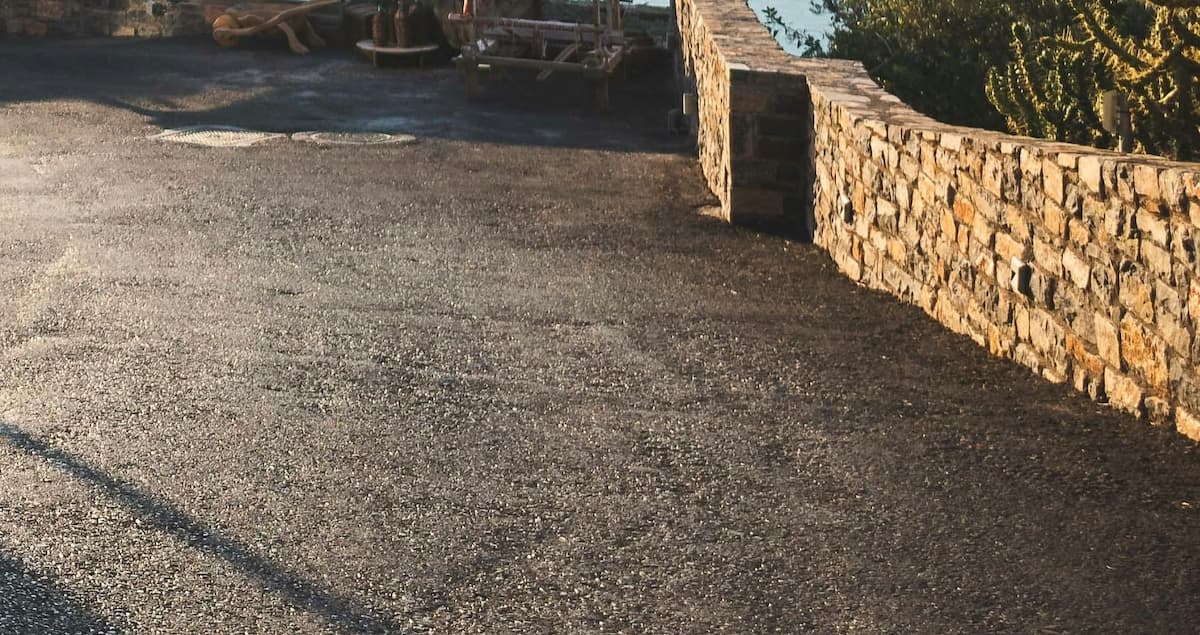Can Hot Weather Affect My Driveway?
May 04, 2025 Driveway Resurfacing, Driveways 4 min read

A driveway might seem tough, but the summer sun tests its limits. When the heat’s on, driveways can soften, crack, and even lose their colour. Damage isn’t just cosmetic. It can lead to safety hazards and leave homeowners facing unexpected repair costs. Staying ahead of heat damage keeps your driveway strong, safe, and looking sharp.
How Hot Weather Impacts Different Driveway Materials
Driveways aren’t all made the same. High temperatures hit each material in unique ways, so understanding the differences helps you prepare. Some surfaces melt; others crack or fade. Learning how your drive copes with heat is the first step toward protection and longevity.
Want to compare materials in detail? Our Driveway Surfacing Guide breaks down resin-bound, tarmac, and more for a closer look.
Tarmac and Asphalt Driveways in the Heat
Tarmac and asphalt are popular for driveways thanks to their smooth finish and curb appeal. But during heatwaves, these surfaces can soften, causing dents and even rutting when tyres park in the same spot. Oil within the mix may rise, making the surface sticky and prone to tracking.
To help your tarmac driveway last, keep it clear of parked cars during the hottest parts of the day. Hose down the surface with cool water in the evening, if you spot softening. For expert tips on protecting your tarmac, check out our advice on Tips for Long-Lasting Tarmac Surfaces.
Resin-Bound and Concrete Driveways in Hot Climates
Resin-bound surfaces look modern and resist weeds, but hot weather presents its own set of challenges. Heat can make resin soften, leading to dents, while UV rays may fade colours over time. Concrete tends to expand in high temperatures. If it can’t move, cracks or spalling may follow.
Choosing a lighter driveway colour helps reflect sunlight and reduce surface heat buildup. Expansion joints in concrete prevent serious cracks. For more on choosing and caring for resin-bound or concrete drives, see our Driveway Surfacing Guide.
Signs of Heat Damage and How to Respond
Spotting heat damage early makes repairs easier and less costly. Some problems look obvious, like melting or cracking, while others develop slowly.
Identifying Heat-Related Driveway Issues
Look for these signs after a heatwave:
- Cracking: Thin lines or wide splits, often from material expanding and shrinking
- Surface ruts: Depressions where vehicles have parked or driven
- Soft spots or stickiness: Tarmac and asphalt can become tacky underfoot
- Melting: Surface appears shiny or leaves residue
- Expansion or heaving: The surface may lift or bulge
Addressing these early keeps them from spreading and stops bigger repairs down the line.
Repairing and Maintaining Your Driveway After Hot Weather
Small cracks and holes are often easy to patch with DIY kits. Use concrete patch or tarmac filler for speedy fixes—just make sure the area is clean and dry first. For softening or melted surfaces, restrict vehicle access and let the surface cool and harden before any repair.
If the damage covers larger areas, or the surface feels unstable, it’s safer (and smarter) to seek help from pros. Read our practical DIY driveway repair tips to decide if a quick fix or a professional touch makes sense.
When It’s Time to Resurface: Long-Term Solutions
Sometimes a fresh layer is the only answer, especially after years of sun and repeated repairs. If your driveway has large cracks, widespread softening, or looks patchy after repairs, resurfacing restores structure and keeps problems from returning.
A new surface also gives you a fresh look and adds value. It’s a chance to switch to a cooler, lighter colour or a tougher material if your current one gives in to the heat too easily. For more on recognising the signs, explore our guide to driveway resurfacing services.
So, what now?
Long, hot summers stress every type of driveway. Softening, cracking, or fading can crop up faster than you think. By spotting damage early, choosing the right repairs, and keeping up with regular checks, you keep your driveway solid year after year. When repairs are no longer enough, resurfacing gives you a clean slate to choose the best surface for hot conditions. Inspect often, act early, and your drive will stay safe, attractive, and durable—no matter how high the temperature climbs.
Get your free surfacing quote
Let our team of experts handle your surfacing — get a free quote today.